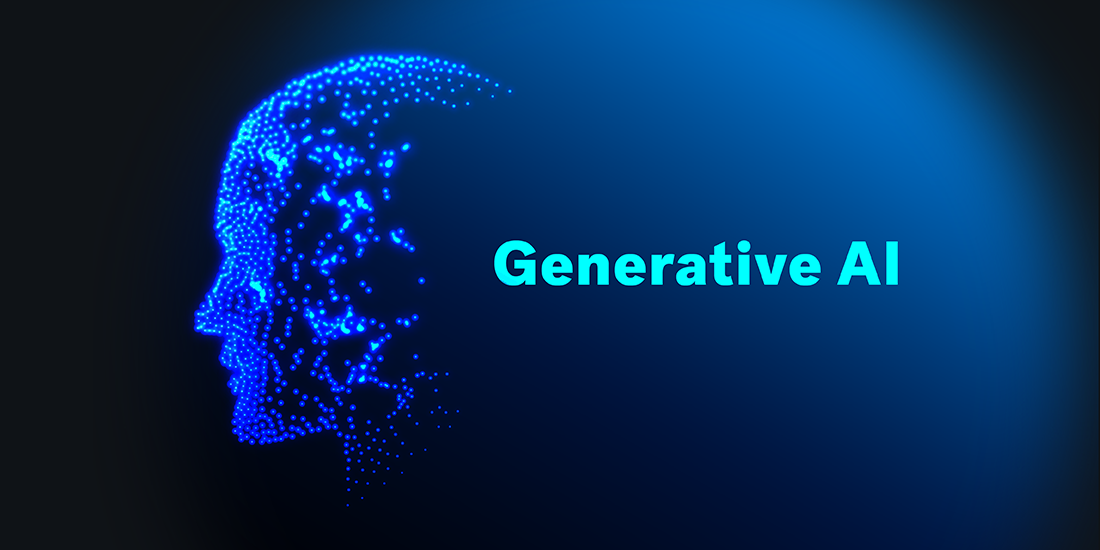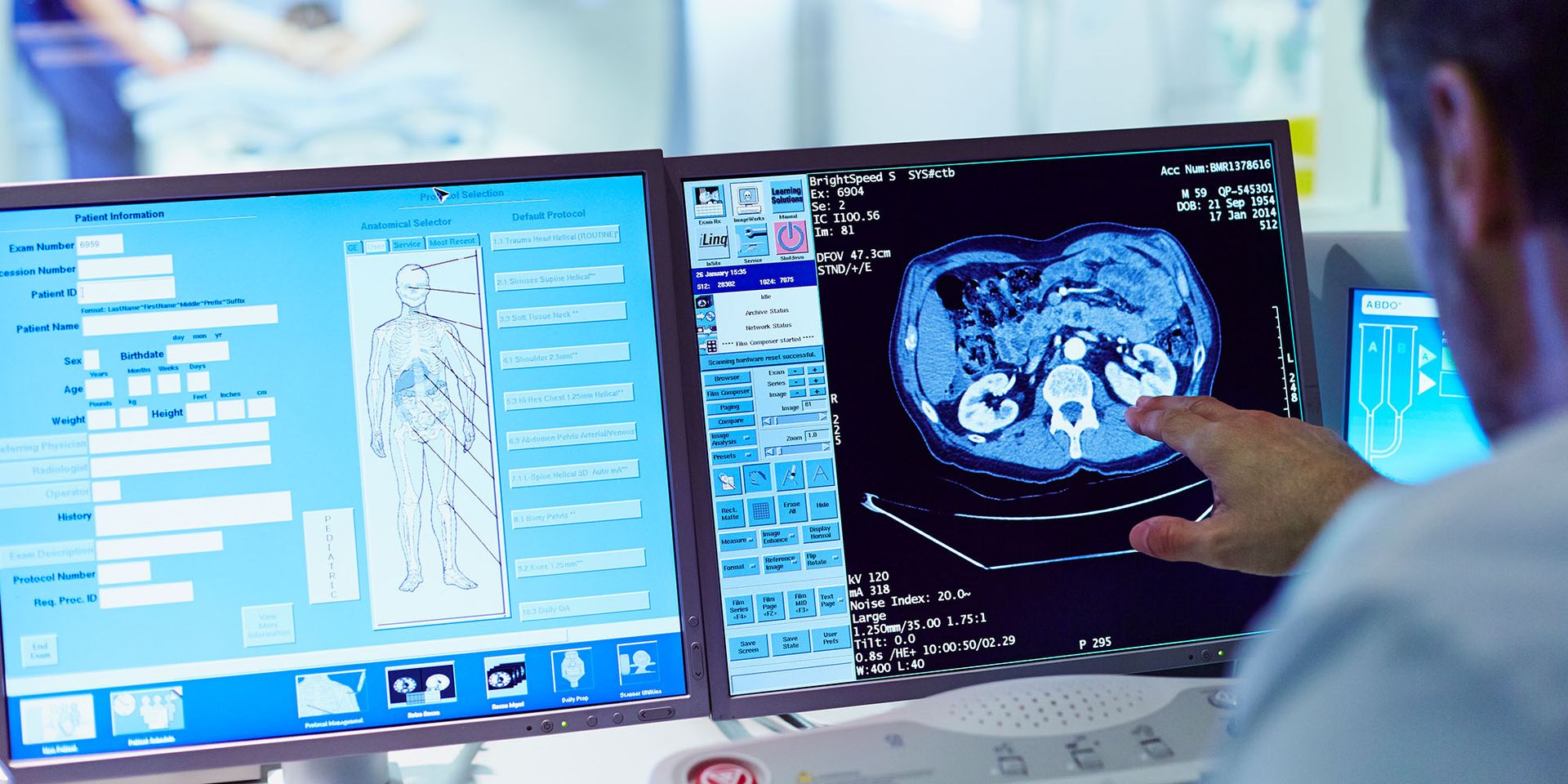Gen AI & LLM in Healthcare
Definition of Generative AI
Generative AI refers to artificial intelligence systems that can generate new content, such as text, images, or other data, based on patterns and structures learned from existing datasets. These systems leverage sophisticated models like Generative Adversarial Networks (GANs) and Variational Autoencoders (VAEs) to create new data instances that resemble the training data. The evolution of generative AI began with early machine learning models and has rapidly advanced with the development of deep learning techniques, enabling more complex and accurate content generation.

Importance and Relevance in Healthcare
Generative AI is increasingly important in the healthcare industry due to its potential to revolutionize medical practice and research. Key breakthroughs, such as AI-assisted drug discovery and enhanced medical imaging, have demonstrated significant impacts on healthcare delivery. Generative AI tools are being utilized to develop personalized treatment plans, improve clinical decision-making, and generate synthetic data for research, thereby enhancing the efficiency and effectiveness of healthcare systems.
Core Concepts of Generative AI
Generative Models in Healthcare
Generative AI models, including GANs and VAEs, are utilized in various healthcare applications. GANs consist of two neural networks—a generator and a discriminator—that work together to produce realistic data. VAEs, on the other hand, encode input data into a latent space and decode it back to reconstruct the input, allowing for data generation and anomaly detection. These models are applied in medical imaging, drug discovery, and personalized medicine, offering innovative solutions to longstanding healthcare challenges.
Training and Data Requirements
High-quality, diverse medical data is crucial for training generative AI models effectively. The complexity and variability of medical data pose significant challenges, including data privacy concerns and the need for large, annotated datasets. Solutions such as federated learning, which trains models across decentralized data sources while preserving privacy, and the use of synthetic data to augment training datasets, help overcome these challenges.
Key Applications of Generative AI in Healthcare
-Medical Imaging
Generative AI enhances and generates medical images, improving diagnostic accuracy and efficiency. Techniques such as AI-assisted image reconstruction and enhancement allow for clearer and more detailed medical images, like MRI and CT scans. For instance, GANs can remove noise from medical images or generate high-resolution versions of low-quality scans, aiding radiologists in more accurate diagnoses.

-Drug Discovery
Generative AI accelerates drug discovery by generating new molecular structures for potential drug candidates. AI models simulate and predict the interactions between molecules and biological targets, significantly reducing the time and cost associated with traditional drug discovery methods. For example, AI-driven platforms have identified promising compounds for diseases like COVID-19, demonstrating the transformative potential of generative AI in pharmaceutical research.
-Personalized Medicine
Generative AI enables the creation of personalized treatment plans by analyzing patient data to tailor therapies to individual needs. AI-generated synthetic patient data also helps improve model training and testing, leading to more accurate predictions and recommendations. This approach enhances patient outcomes by providing targeted treatments based on genetic, environmental, and lifestyle factors.
-Clinical Decision Support
Generative AI assists in clinical decision-making by enhancing electronic health records (EHRs) with generated insights. AI models analyze vast amounts of clinical data to provide recommendations for diagnosis and treatment, helping healthcare providers make informed decisions. This integration of AI in clinical practice improves patient care and reduces the cognitive load on medical professionals.
-Synthetic Data Generation
Generative AI produces synthetic datasets to train and validate models, addressing data privacy and scarcity issues. These synthetic datasets mimic real-world data without compromising patient confidentiality, enabling researchers to develop and test AI models more effectively. Synthetic data generation is particularly valuable in scenarios where access to large, diverse datasets is limited.
Case Studies
-Medical Imaging Enhancement
Generative AI has significantly improved medical imaging, with specific examples including the enhancement of MRI and CT scans. AI models have been used to reconstruct high-resolution images from low-quality scans, reducing the need for repeat imaging and lowering patient exposure to radiation. These implementations have led to better diagnostic accuracy and improved patient outcomes.
-Drug Discovery Breakthroughs
AI-driven drug discovery has achieved notable successes, such as the identification of new drug candidates for complex diseases. For instance, generative AI was instrumental in discovering potential treatments for COVID-19, accelerating the development process and reducing costs. These breakthroughs highlight the efficiency and potential of AI in transforming pharmaceutical research.

-Personalized Medicine
Generative AI has enabled personalized treatment plans in various medical fields, including oncology and cardiology. Case studies show that AI-driven approaches have improved patient outcomes by tailoring treatments to individual needs, considering genetic profiles, and predicting treatment responses. These personalized interventions enhance the quality of care and patient satisfaction.
Challenges and Limitations
-Data Privacy and Security
Ensuring patient data is protected while using generative AI is a significant challenge. Techniques such as data anonymization, encryption, and federated learning are employed to safeguard patient information. However, continuous efforts are required to enhance data security measures and comply with regulations like the Health Insurance Portability and Accountability Act (HIPAA).

-Bias and Fairness
Generative AI models can inherit biases from the training data, leading to unfair or discriminatory outcomes. Addressing these biases involves ensuring diverse and representative datasets and implementing algorithms that detect and mitigate bias. Continuous monitoring and evaluation of AI models are necessary to maintain fairness and equity in healthcare applications.
-Ethical and Regulatory Concerns
Navigating the ethical landscape and complying with regulations are critical for the deployment of generative AI in healthcare. Ethical concerns include patient consent, data ownership, and the potential misuse of AI-generated data. Regulatory frameworks must evolve to address these issues, ensuring that AI technologies are used responsibly and transparently.
-Technical Challenges
Ensuring model accuracy and reliability in critical healthcare applications is paramount. Generative AI models must be rigorously tested and validated to prevent errors that could lead to patient harm. Additionally, overcoming computational resource limitations requires investments in infrastructure and advancements in AI algorithms to optimize performance.
Future Trends and Directions
-Advances in Model Accuracy
Ongoing innovations aim to improve the precision and reliability of generative AI models. Techniques such as transfer learning, self-supervised learning, and improved neural network architectures contribute to enhanced model accuracy, making AI tools more dependable in healthcare settings.
-Integration with Other Technologies
Combining generative AI with IoT, robotics, and other healthcare technologies promises to create more comprehensive and efficient healthcare solutions. For example, AI-integrated smart devices can monitor patient vital signs in real-time, while robotics can assist in surgical procedures, enhancing the overall quality of care.
-Improved Data Handling
Advancements in data handling and security are essential for the successful implementation of generative AI in healthcare. Emerging technologies such as blockchain offer secure and transparent methods for managing medical data, ensuring data integrity and patient privacy.

-Regulatory and Ethical Frameworks
Developing guidelines for the ethical use of generative AI in healthcare is crucial. Collaborative efforts among healthcare providers, regulators, and technologists are needed to establish standards that promote responsible AI usage and protect patient rights.
Implementing Generative AI in Healthcare
-Choosing the Right Model
Selecting appropriate generative models for healthcare applications involves considering factors such as the specific use case, data availability, and model performance. GANs, VAEs, and large language models each offer unique advantages depending on the application.
-Development Frameworks and Tools
Popular frameworks like TensorFlow and PyTorch, along with specialized healthcare AI platforms, provide the tools necessary for developing and deploying generative AI solutions. These frameworks support the implementation of advanced AI models and facilitate integration with existing healthcare systems.
-Best Practices
Guidelines for developing, testing, and deploying generative AI solutions include thorough validation, continuous monitoring, and adherence to ethical standards. Ensuring the robustness and reliability of AI models through rigorous testing is critical for safe and effective deployment.
-Ethical Considerations
Responsible and ethical implementation of generative AI in healthcare involves obtaining informed consent, ensuring transparency, and addressing potential biases. Healthcare organizations must prioritize ethical considerations to build trust and ensure patient safety.
Conclusion
Summary of Key Points
Generative AI has the potential to transform healthcare by enhancing medical imaging, accelerating drug discovery, and enabling personalized medicine. Despite challenges related to data privacy, bias, and ethical concerns, ongoing advancements and responsible implementation can address these issues.
Call to Action
Healthcare professionals and technologists are encouraged to explore and adopt generative AI technologies responsibly. By leveraging the capabilities of generative AI, the healthcare industry can improve patient outcomes, enhance clinical decision-making, and drive innovation.
Final Thoughts
The future of generative AI in healthcare is promising, with continuous advancements and growing adoption across the industry. By prioritizing ethical considerations and addressing technical challenges, generative AI can become a vital tool in delivering high-quality, personalized healthcare.